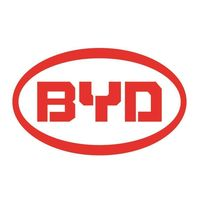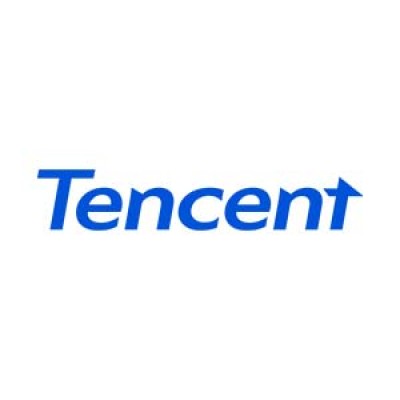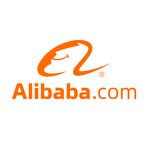Xi Jinping's Balancing Act: Reassuring Business Leaders Amid Economic Turmoil
February 18, 2025, 9:43 am

Location: United States, California, Los Angeles
Employees: 10001+
Founded date: 1999
In a high-stakes meeting on February 17, 2025, Chinese President Xi Jinping gathered some of the nation’s most influential business leaders, including Alibaba's Jack Ma, to address the pressing issues facing the private sector. The backdrop was a turbulent economic landscape, marred by the aftershocks of a pandemic, regulatory crackdowns, and a real estate crisis. Xi's message was clear: stability and support for the private economy are paramount.
The meeting, held in Beijing, marked a significant moment for Xi, who has faced criticism for his government's heavy-handed approach to the tech industry. In recent years, the Communist Party of China (CPC) has tightened its grip on major corporations, aiming to dismantle monopolies and enforce strict data regulations. Jack Ma, once the face of China's tech boom, became a symbol of this crackdown. His fall from grace was swift, following a speech in 2020 that criticized regulators. The government responded by halting his plans for Ant Group's IPO and imposing hefty fines on Alibaba.
Now, Xi's assurances to business leaders signal a potential thaw in relations. He emphasized that the government's policies regarding the private sector are firmly rooted in the "socialist system with Chinese characteristics." This phrase, often used by the CPC, suggests a blend of state control and market economy principles. Xi's commitment to protecting the legal rights of private businesses is a lifeline for entrepreneurs who have felt the weight of regulatory scrutiny.
The meeting also came at a time of heightened geopolitical tensions, particularly with the United States. Concerns over Donald Trump's potential return to the presidency and his plans to increase tariffs on Chinese exports loom large. This uncertainty adds pressure to an already fragile economic recovery, which has seen GDP growth hover around 5 percent in recent years.
Xi's call for business leaders to "unleash their talents" is a clarion call for innovation and growth. He urged them to reach a consensus and bolster confidence in the private sector. This is not just about economic recovery; it’s about restoring faith in a system that has been perceived as increasingly hostile to private enterprise.
The symposium was the first of its kind since 2018, reflecting a shift in Xi's approach. He acknowledged the challenges facing the private economy, labeling them as temporary obstacles rather than long-term issues. This perspective is crucial. It signals to entrepreneurs that the government is willing to support them through difficult times.
Xi's promises extend beyond mere words. He vowed to remove barriers to fair market competition and production, addressing long-standing grievances among business leaders. The commitment to tackle payment arrears owed to private enterprises and to curb arbitrary fines and inspections is a welcome relief. These measures could restore some semblance of normalcy in a landscape that has felt increasingly unpredictable.
However, the road ahead is fraught with challenges. While Xi's reassurances are a step in the right direction, the reality on the ground tells a different story. Local governments, struggling with declining revenues, have resorted to heavy fines and penalties against businesses. This contradictory behavior undermines the central government's efforts to foster a supportive environment for private enterprises.
Moreover, the specter of regulatory crackdowns still looms large. The CPC's history of swift and severe actions against perceived threats to its authority has left many entrepreneurs wary. Confidence among investors remains muted, as the fear of sudden regulatory shifts continues to cast a shadow over business operations.
Jack Ma's presence at the meeting is particularly noteworthy. After years of self-imposed exile and a cautious return to the public eye, his participation signals a potential reconciliation between the tech giant and the government. Ma's journey reflects the broader narrative of China's private sector—one marked by rapid growth, sudden setbacks, and the constant negotiation of power dynamics with the state.
As Xi urged private businesses to "get rich first, and then promote common prosperity," he highlighted the delicate balance between individual success and collective welfare. This duality is at the heart of China's economic model, where the state seeks to harness the energy of private enterprise while maintaining control over its direction.
In conclusion, Xi Jinping's meeting with business leaders is a pivotal moment in China's economic narrative. It encapsulates the tension between state control and market freedom, a dance that defines the relationship between the CPC and the private sector. As the government seeks to revive a faltering economy, the path forward will require not just assurances, but tangible actions that foster trust and stability. The stakes are high, and the world will be watching closely as China navigates this complex landscape.
The meeting, held in Beijing, marked a significant moment for Xi, who has faced criticism for his government's heavy-handed approach to the tech industry. In recent years, the Communist Party of China (CPC) has tightened its grip on major corporations, aiming to dismantle monopolies and enforce strict data regulations. Jack Ma, once the face of China's tech boom, became a symbol of this crackdown. His fall from grace was swift, following a speech in 2020 that criticized regulators. The government responded by halting his plans for Ant Group's IPO and imposing hefty fines on Alibaba.
Now, Xi's assurances to business leaders signal a potential thaw in relations. He emphasized that the government's policies regarding the private sector are firmly rooted in the "socialist system with Chinese characteristics." This phrase, often used by the CPC, suggests a blend of state control and market economy principles. Xi's commitment to protecting the legal rights of private businesses is a lifeline for entrepreneurs who have felt the weight of regulatory scrutiny.
The meeting also came at a time of heightened geopolitical tensions, particularly with the United States. Concerns over Donald Trump's potential return to the presidency and his plans to increase tariffs on Chinese exports loom large. This uncertainty adds pressure to an already fragile economic recovery, which has seen GDP growth hover around 5 percent in recent years.
Xi's call for business leaders to "unleash their talents" is a clarion call for innovation and growth. He urged them to reach a consensus and bolster confidence in the private sector. This is not just about economic recovery; it’s about restoring faith in a system that has been perceived as increasingly hostile to private enterprise.
The symposium was the first of its kind since 2018, reflecting a shift in Xi's approach. He acknowledged the challenges facing the private economy, labeling them as temporary obstacles rather than long-term issues. This perspective is crucial. It signals to entrepreneurs that the government is willing to support them through difficult times.
Xi's promises extend beyond mere words. He vowed to remove barriers to fair market competition and production, addressing long-standing grievances among business leaders. The commitment to tackle payment arrears owed to private enterprises and to curb arbitrary fines and inspections is a welcome relief. These measures could restore some semblance of normalcy in a landscape that has felt increasingly unpredictable.
However, the road ahead is fraught with challenges. While Xi's reassurances are a step in the right direction, the reality on the ground tells a different story. Local governments, struggling with declining revenues, have resorted to heavy fines and penalties against businesses. This contradictory behavior undermines the central government's efforts to foster a supportive environment for private enterprises.
Moreover, the specter of regulatory crackdowns still looms large. The CPC's history of swift and severe actions against perceived threats to its authority has left many entrepreneurs wary. Confidence among investors remains muted, as the fear of sudden regulatory shifts continues to cast a shadow over business operations.
Jack Ma's presence at the meeting is particularly noteworthy. After years of self-imposed exile and a cautious return to the public eye, his participation signals a potential reconciliation between the tech giant and the government. Ma's journey reflects the broader narrative of China's private sector—one marked by rapid growth, sudden setbacks, and the constant negotiation of power dynamics with the state.
As Xi urged private businesses to "get rich first, and then promote common prosperity," he highlighted the delicate balance between individual success and collective welfare. This duality is at the heart of China's economic model, where the state seeks to harness the energy of private enterprise while maintaining control over its direction.
In conclusion, Xi Jinping's meeting with business leaders is a pivotal moment in China's economic narrative. It encapsulates the tension between state control and market freedom, a dance that defines the relationship between the CPC and the private sector. As the government seeks to revive a faltering economy, the path forward will require not just assurances, but tangible actions that foster trust and stability. The stakes are high, and the world will be watching closely as China navigates this complex landscape.

